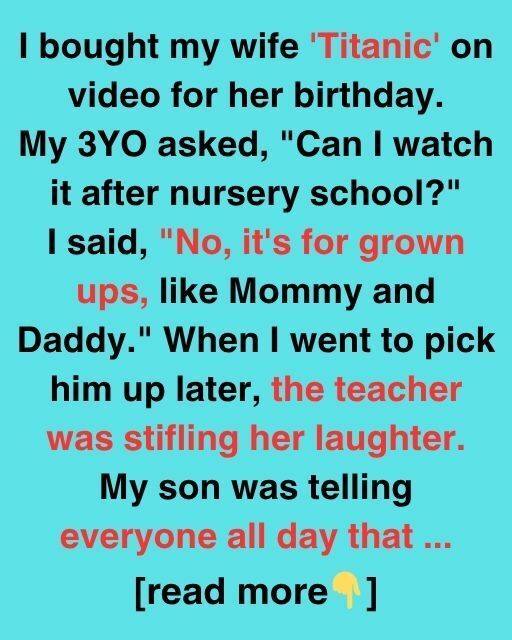For my wife’s birthday, I gave her Titanic on DVD. Our 3-year-old son, Max, overheard and later told everyone, “Mommy and Daddy watch Titanic alone at night… because it’s for grown-ups.” It caused some laughs, but it sparked something deeper too. Max became fascinated—not with the film, but the real Titanic. He asked thoughtful questions and built ships out of blocks. One night over dinner, he said, “When I was in Mommy’s tummy, you were going really fast and didn’t see your iceberg.” It stopped us cold.
He was right. We’d rushed into marriage and parenthood, not fully ready. But Max’s innocent insight led to long-overdue conversations, healing, and small changes that reconnected us. Years later, we visited Halifax and stumbled into a Titanic exhibit. Max, now nine, stood silently, then pointed and said, “This is where it happened.” He hadn’t learned it in school—he just knew. That night, we let him watch the movie. Afterward, he quietly said, “They were too proud. That’s why it sank.”
The next morning, we found a note in his handwriting:
“Even the largest ships need to be humble. Or else they will sink.” Max continued to grow into a thoughtful, empathetic young man. At 13, he thanked me for staying—when it would’ve been easier to leave. At his graduation, he gave us the old Titanic DVD with a note:
“Thanks for steering me through life… even when we couldn’t see the icebergs.”
That night, my wife and I watched Titanic again—slowly this time. With gratitude. Because sometimes, the iceberg isn’t the end. Sometimes, it’s the beginning. Lesson?
Slow down. Watch for icebergs. And listen closely—children often see what adults miss.
